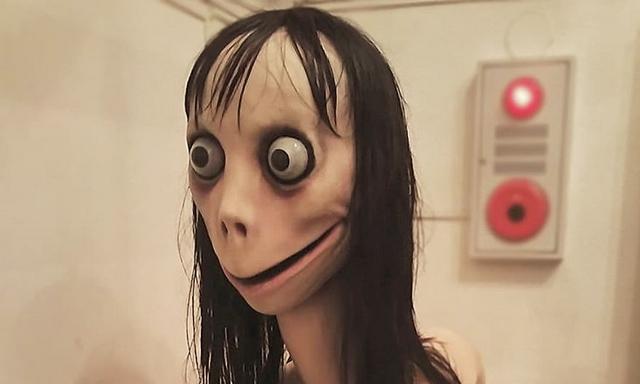By now, you've probably seen articles with a screaming headline indicating something along the lines of a disturbing "viral suicide" Whatsapp game called 'Momo'.
The various articles claim that 'Momo' involves some kind of disturbing image of a woman with wide eyes, black hair, and what appears to be a beak-like mouth. The specifics of the game aren't specified, but it essentially claims that 'Momo' implores its players to do various things in order to complete what's known as the 'Momo' Challenge.
So, what does it all mean? Well, not a whole lot, to be quite honest.
Let's start with the image. The image is from a modern art gallery in Japan. It's a sculpture called 'Mother Bird', and is a reference to a Japanese folklore creature called an ubume. The sculpture itself was created by Keisuke Aisawa, a special effects creator for Link Factory. Neither Keisuke Aisawa and Link Factory have anything to do with the 'Momo' Challenge, and have denied any involvement with it.
The image has cropped up in mods in the likes of 'Minecraft', but again, these mods - or modifications - have no connection to the 'Momo' Challenge, beyond the fact that it's a disturbing image.
What's the challenge itself? Like the 'Blue Whale' Challenge that went viral in Russia two years ago, it basically involves people being contacted via Whatsapp and being challenged to do certain things.
In some cases, it's watching a horror movie alone or, in other instances, listen to heavy metal at extreme volumes. From there, it moves on to more extreme challenges. Failure to complete these challenges results in the person being sent violent, graphic and gory images or threats that 'Momo' will come visit them in the middle of the night.
What's important to remember is that the 'Momo' Challenge is not only completely fake, but that it can only begin when somebody contacts the game's administrator. Ads for the 'Momo' Challenge have cropped up during mobile games, often with the above image and a mobile number - urging them to take part in the 'Momo' Challenge.
Who's actually behind the 'Momo' Challenge is unclear, as is what the actual point of it all. Some believe it's basically a way for criminals to gather up personal information or simply to extort money. However, much like the 'Blue Whale' Challenge in Russia, it's more a case of moral panic than anything else.
In the case of the 'Blue Whale' Challenge in Russia, various suicides were attributed to the game when - in fact - they had nothing to do with it, or had tenuous links at best to it. It's the same with the 'Momo' Challenge. Here's a Snopes article on the 'Blue Whale' challenge, to give it some context.
Some news reports from less-than-reputable sources claim that the 'Momo' Challenge has caused suicides in Argentina, India, Colombia and France. Yet, in all these supposed instances, there appears to be no conclusive link between the 'Momo' Challenge and suicide. In fact, the veracity of the reporting is equally as suspect, and is most likely contributing to a moral panic than anything else.
The 'Momo' Challenge has recently begun appearing in Whatsapp groups in Ireland and the UK, but again, both the veracity of the reporting versus what's actually causing it appears to be suspect.
Parents, meanwhile, have been contacting police departments when they find any link to it on their children's phones - and the advice parents have been receiving is universal. Simply put, don't text any number relating to the 'Momo' Challenge, don't respond to any text relating to the 'Momo' Challenge, and don't forward any text regarding the 'Momo' Challenge to anyone else.
That's really the strongest advice you can get regarding both the 'Momo' Challenge, and any kind of social media phenomenon. Like any kind of moral panic in the past - be it chain letters, 'Neknominations', Charlie Charlie, whatever - all it takes is poor reporting, gullible people, a lack of awareness, and misinformation for it to spread and do exactly what it's initially intended to do - to freak out and scare as many people as possible.









































































